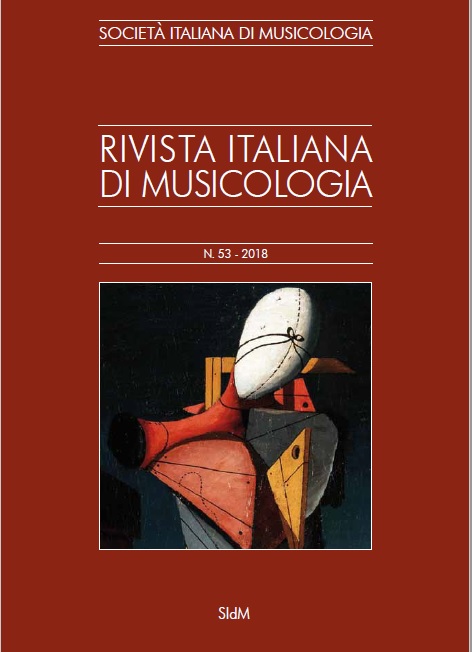L’opera come frammento e l’albero di Tule: procedimenti intertestuali nelle opere della maturità di Franco Donatoni
Abstract
Franco Donatoni, in his writings of 1980s, uses metaphors coming from the natural world in order to describe the act of composition and the composed work. Terms such as “cell”, “organism”, “root”, and “plant” stand next to that of rhizome, originating from Mille plateaux by Félix Guattari and Gilles Deleuze. The rhizome in Donatoni’s poetics contributes to define form not as the application of a pre-existing model, but as a process of continuous transformation of the material. To these concepts Donatoni associates that of fragment: for him all musical work is made of fragments (at a macroscopic level, the panels, at a microscopic level, the intervals). A work is in turn only a fragment of an author’s total opus, an opus that cannot aspire to totality. A rhizomatic approach is realized in the process of quotation that characterizes many of Donatoni’s works. Since the beginnings of his career, Donatoni builds up a piece by using formalized material from a previous composition as a point of departure. In his late works quoted fragments often come from his own compositions. This article examines some works of 1980s, Alamari (1983), Tema (1981), Still (1985). These show different modes of quotation. That no pre-compositional materials have been preserved for Donatoni’s late works makes the analysis of intertextual procedures enormously useful in order to better understand the genesis and processes of these works.##submission.downloads##
Pubblicato
03/19/2018
Fascicolo
Sezione
Saggi


